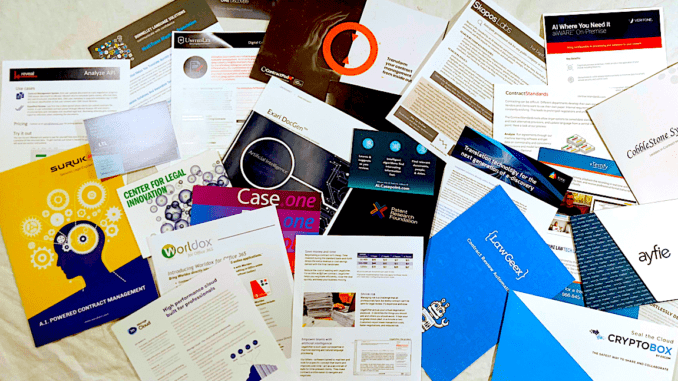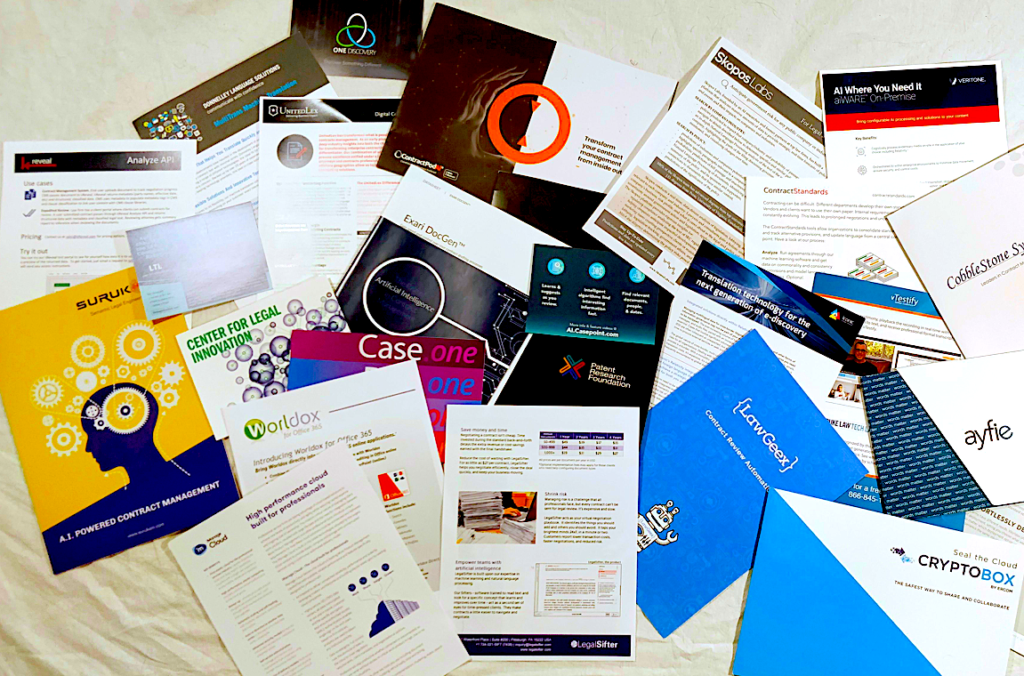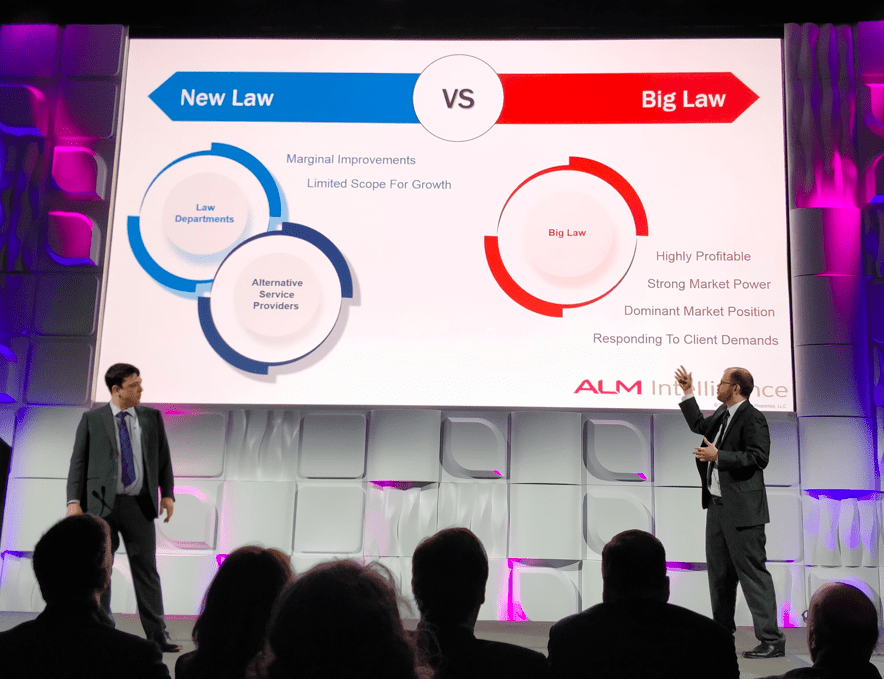
For legal AI fans the Legal Tech New York conference kicked off on Monday (see report here), but for many attendees it was Tuesday that marked the official start of their law and technology smorgasbord.
Fortunately for Artificial Lawyer readers we had Guest Correspondent, Ari Weinstein, founder of Confident Contracts, there to tell us all about what went down. Take it away, Ari!
Today Legalweek, also known as Legal Tech New York, opened to the general public. The conference and trade show occupies several floors of New York City’s Midtown Hilton Hotel, and was completely packed with attendees.
The opening session kicked off with a state of the industry address by journalists Nicholas Burch and Steve Kovalan from ALM, the media company that runs the event. Much ground was covered, examining how various segments of the legal field compete with each other in today’s marketplace.
Cutting edge technology such as AI was also discussed. A note of reassurance was sounded, as these advanced technology systems were compared to symbiotes that will work alongside lawyers to perform select tasks, while learning from them.
A takeaway from the entire presentation was that the legal industry, while changing, is not seeing major shifts in market share among its main segments, with large law firms continuing to dominate. ALM showed a video interview clip with Jami Wintz McKeon, Chair of Morgan Lewis, in which she postulated that clients who require complex legal services that span geographies and industries tend to prefer a single provider over multiple smaller firms.
The marquee keynote was delivered by Jeh Johnson, former U.S. secretary of Homeland Security under President Obama. He discussed his public service and long history as a litigator. In a first for a keynote speaker at Legal Tech, he answered questions that were submitted and voted on by attendees via a dedicated website. The questions popped up in real-time, and he addressed many of them.

He noted that cyber threats were his number one concern, and that law firms – and governments – were likely being subjected to attacks even as we sat and listened to him. His closing remarks struck a note of humanity; He urged the audience to revive the practice of meeting people face-to-face and interacting in person as opposed to via electronic means. He decried incivility and bad behavior, reminding everyone that we all serve as examples to younger people, whether subordinates or members of our families.
After the keynote sessions it was time to visit the show’s exhibitors, and I spent the entire rest of the day doing so. The show floors were packed with a wide array of vendors; Legal Tech lists over 180 in attendance.
They ranged from major providers such as IBM, Microsoft, and LexisNexis that offer entire solution suites to law firms of every size, to tiny new companies like Class Action, which is offering a web app to U.S. consumers for recovering settlement monies from multiple sources, and Mibot, a legal AI from Tokyo consisting of two founders that helps draft international business contracts.
As usual at these conferences, there were multiple vendors offering e-discovery products, matter and practice management software, and various document, content, and workflow solutions.
Companies demonstrated how they are leveraging AI, with machine learning, pattern recognition and advanced analytics for legal solutions.
Firms I’m already familiar with such as Luminance, told me about their latest initiatives, such as branching out from M&A to the real estate market, and releasing version 3.0 of their AI software for contract analytics.
Other companies are using AI in new ways; Ping is leveraging predictive technology to automate timekeeping by attorneys, helping make one of their more mundane daily tasks much easier.
Others like LawGeex are automating transactional contract reviews to assess whether agreements can be signed with no further human oversight. Complex agreements are also being handled by providers like ContractPod, which is now using IBM’s Watson AI capabilities.
Of particular interest to me were companies in my own field that offer contract management software and services. Some like Ayfie are preforming analysis and discovery to produce normalized output from previously unstructured content.
By the end of the day, I had amassed a significant pile of literature to review, even though I was trying to be selective. I’m looking forward to the remainder of Legal Tech.
Thanks, Ari! For another brilliant overview of the conference.

